Advertisement
How Mass. colleges responded to student protest encampments
The pro-Palestinian protest encampments that cropped up at many Massachusetts colleges over the past month came to an end Tuesday when students at Harvard University voluntarily dismantled their camp — the last standing in the area. Several factors tipped the end of campus encampments in the Bay State — from police-assisted forcible removal to voluntary disbandment following agreed talks with administrators.
Here's how things played out across the commonwealth over the past several weeks:
Harvard
The pro-Palestinian protest in Harvard Yard organized by the student-led coalition known as Harvard Out of Occupied Palestine (HOOP) lasted about 20 days after springing up April 24. On May 6, Harvard administrators said they would begin issuing academic sanctions and disciplinary notices to convince protestors to leave on their own. Still, students remained in Harvard Yard for more than a week until voluntarily dismantling their camp on Tuesday.
This happened after HOOP reached an agreement with the university to partake in future talks. Interim president Alan Garber and dean of the faculty of arts and sciences Hopi Hoekstra have promised to meet with protesting students regarding the war in Gaza. School leadership also hopes to "pursue a meeting" between the students and the Corporation Committee on Shareholder Responsibility regarding Harvard's endowment.
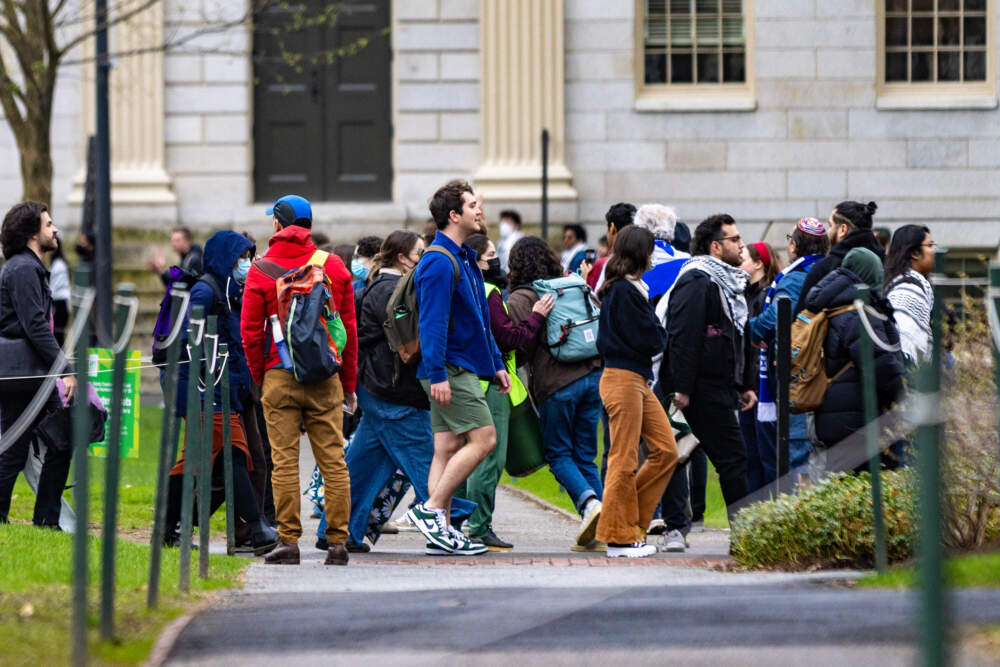
According to the Harvard Crimson, roughly 22 students were put on involuntary leave for not vacating the encampment, but Garber said he would ask individuals schools to "promptly initiate applicable reinstatement proceedings."
HOOP, in a statement Tuesday, said the group "moved the needle on disclosure and divestment at Harvard," but added it does not consider future promised meetings with Harvard leadership to be "material divestment wins." "The end of the encampment marks the beginning of a new phase of our movement," the group stated.
MIT
The pro-Palestinian protest movement at MIT was one of the tensest in the region due to its length, heated warnings from administrators and presence of counter-protestors. The group known as Scientists Against Genocide Encampment (SAGE) organized the 20-day encampment on Kresge Lawn. The group organized multiple rallies — some of which spilled over to outlying areas like the Stata Center — while protestors pushed back against threats of punishment by university leadership, including suspensions and revocation of student housing.
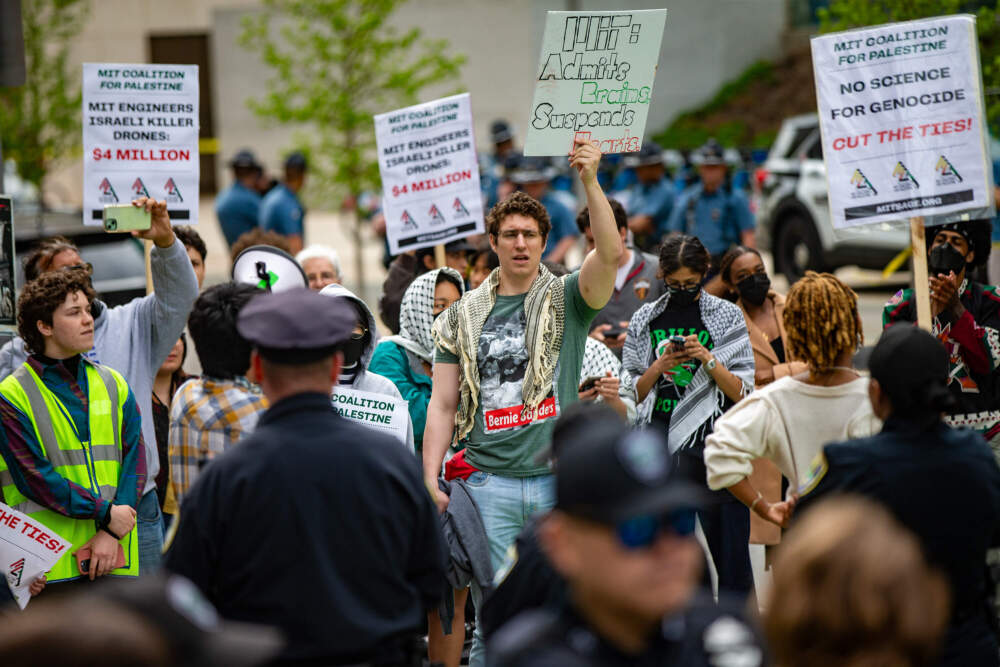
The protest encampment at MIT ended when campus police raided Kresge Lawn tents in the early morning hours of May 10. Ten students were arrested for not vacating the area. Attorneys representing the state said in court they plan to drop charges against the students when their arraignment date comes up in July as long as they follow MIT's rules and avoid trespassing on campus.
According to an MIT spokeswoman on Tuesday, "fewer than 30" interim suspensions and disciplinary citations were issued to students for not abiding by orders to vacate Kresge Lawn.
MIT President Sally Kornbluth wrote in a May 10 message to the campus community that the use of police was a "last resort."
"No matter how peaceful the students’ behavior may be, unilaterally taking over a central portion of our campus for one side of a hotly disputed issue and precluding use by other members of our community is not right," she wrote. "This situation is inherently highly unstable."
"It was not heading in a direction anyone could call peaceful," she added. "And the cost and disruption for the community overall made the situation increasingly untenable. We did not believe we could responsibly allow the encampment to persist."
Advertisement
Tufts
The encampment at Tufts University lasted 10 days and was organized by a coalition known as Students for Justice in Palestine. Participating students voluntarily ended their protest after meeting with Tufts president Sunil Kumar. School officials didn't disclose the details about what led students to agree to take down their tents.
"We're pleased that the encampment has been taken down and that the protest on the academic quad has been resolved peacefully and voluntarily," said Patrick Collins, a spokesman for Tufts. "The protesters' departure was not the result of an agreement with the university."
Students for Justice in Palestine was also mum about any details of its final discussions with school leadership. In an Instagram post, the group highlighted that the decision to remove the encampment was not the result of negotiations, adding that it may release more details at a later date.
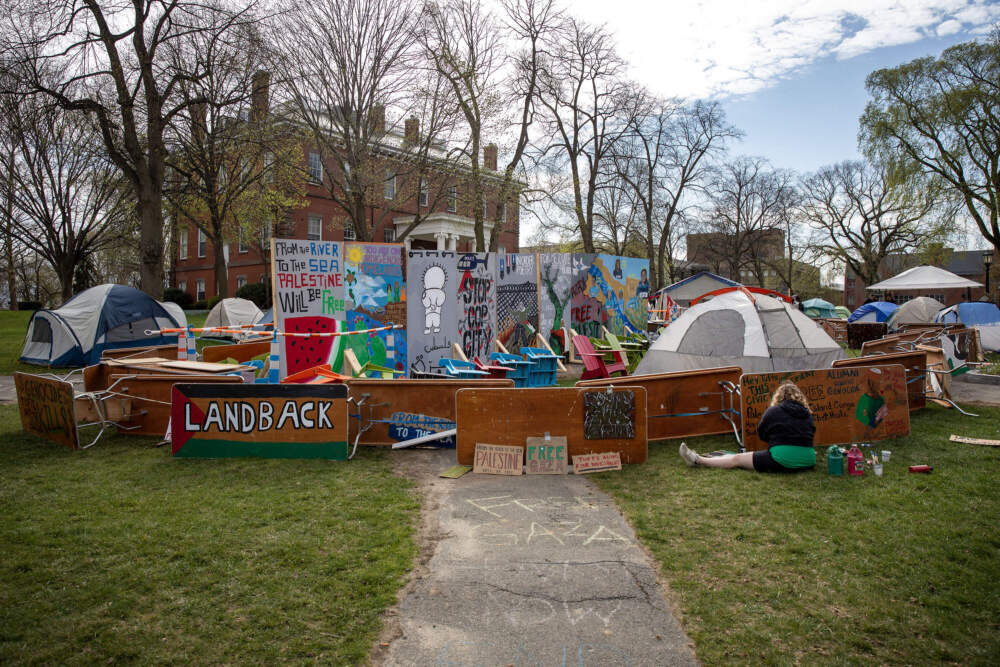
The removal of the encampment came shortly after Tufts leadership told students to vacate the area or risk suspension.
Northeastern
Roughly 100 people were arrested on Northeastern's campus when multiple law enforcement agencies, including campus police, the Massachusetts State Police and Boston police in riot gear raided the pro-Palestinian encampment in the early morning hours of Saturday April 27.
It was one of the shortest college encampments in the area, lasting just two days.
A university spokeswoman said multiple factors had led to the decision to shut down the camp, including the alleged use of antisemitic slurs and the existence of "professional organizers with no affiliation to Northeastern." Student protestors rejected those claims and said antisemitic language was used by counter-protestors and not by anyone affiliated with their group.
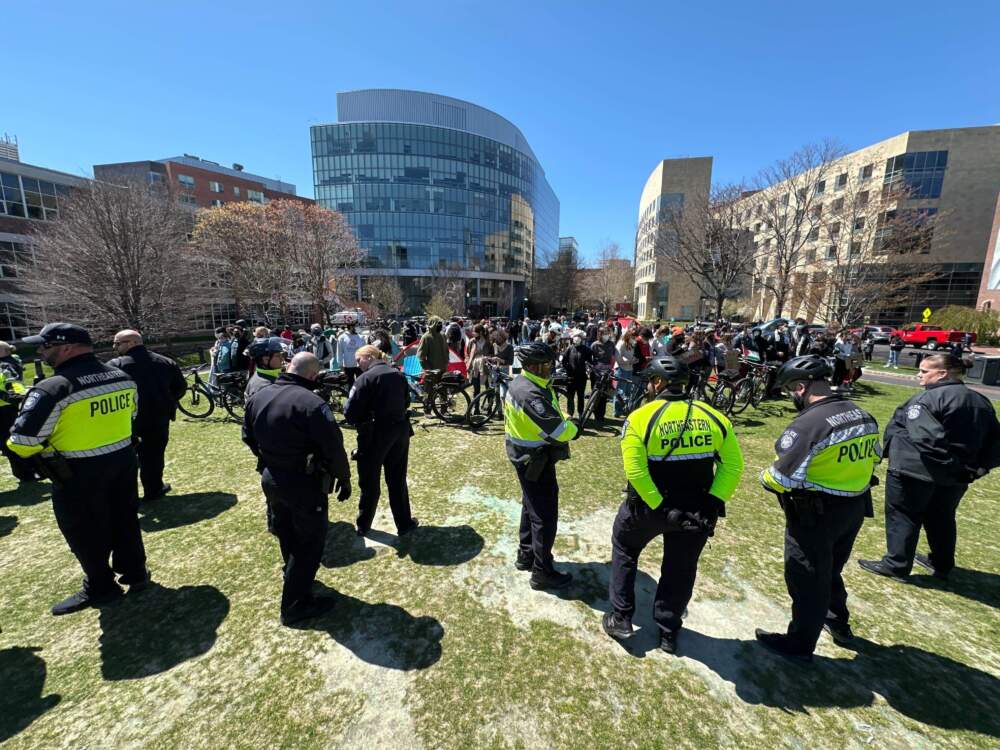
Students who could show a Northeastern ID were allowed to leave without being arrested when police raided the encampment, but a spokeswoman said they will face disciplinary actions.
Some student protestors declined interviews from WBUR, but they did post to social media shortly after the police raid. "Your lies will not shield you from the power and bravery your students have demonstrated," read an Instagram statement directed at school administrators.
Emerson
The Emerson student encampment in Boylston Place alleyway was one of the first to be shut down in the region with police assist. The Boston Police Department arrived in tactical gear early in the morning of Thursday, April 25 to remove participating students, many of whom could be seen linking arms to prevent officers from infiltrating the area. In total, 118 students were arrested. The move came shortly after Emerson leadership emailed students asking them to leave the area, warning them that law enforcement action from the city of Boston was imminent.
Boylston Place alleyway is under BPD jurisdiction because the area is considered a public right of way. City officials claimed the encampment violated multiple city ordinances including noise violations and rules prohibiting tents in a public right of way.
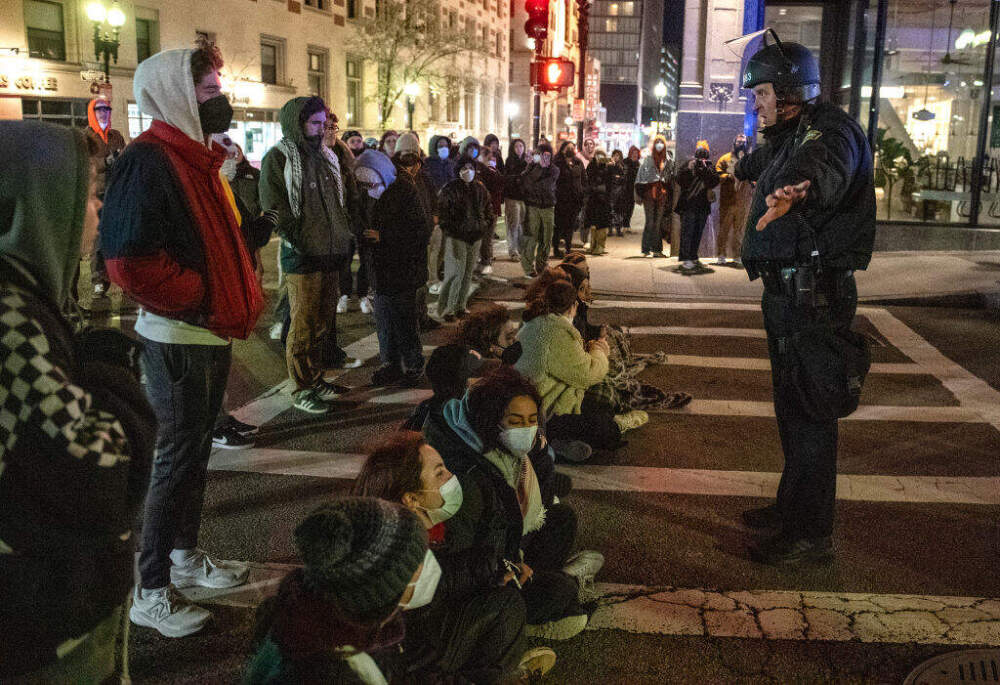
In a statement responding to the arrests, Emerson leadership said the school would not pursue additional school-based disciplinary action. The school also offered housing support for students who needed to return to Boston for court appearances.
Most of the students who were arrested were arraigned on one of two charges: criminal trespassing and failure to disperse. Students facing those charges were ordered to complete 20 hours of community service and stay off campus unless they were there for academic purposes or if they lived in a building owned by the university.
UMass Amherst
More than 130 people were arrested on May 8 on the campus of UMass Amherst when University of Massachusetts police forcibly disbanded a protest encampment.
The school's Students for Justice in Palestine group had peacefully dismantled the encampment earlier in the week under the threat of arrest, but later reestablished the camp.
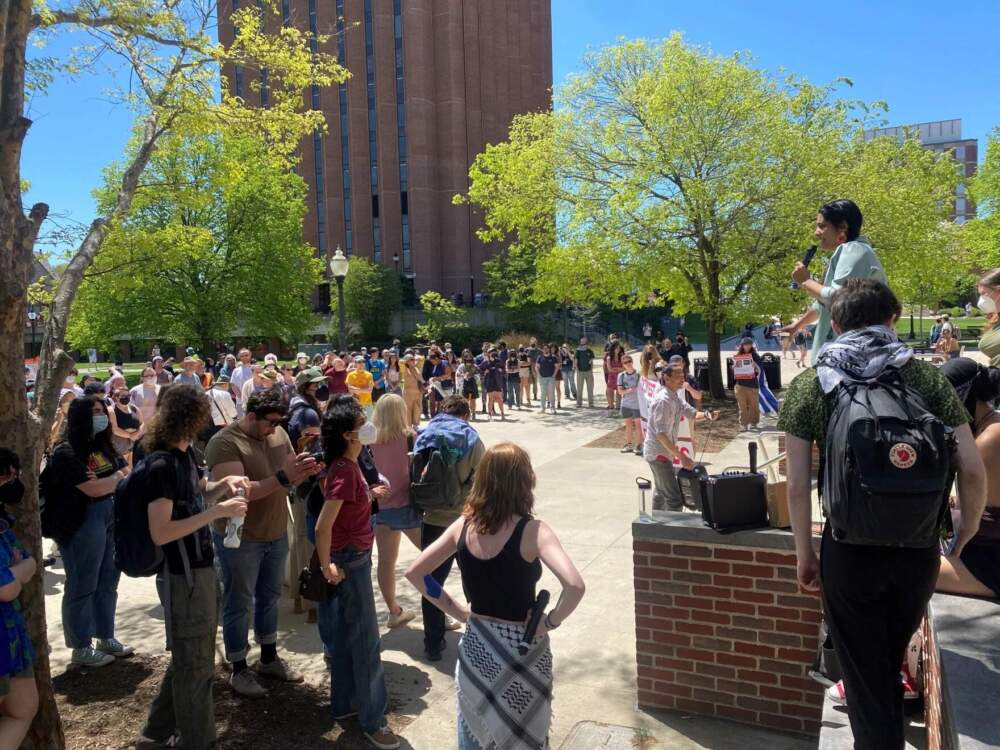
"Safety, wellbeing, and a sense of belonging are paramount for our community’s ability to thrive, and I recognize that there is work to do as we restore trust with those who feel harmed by the university’s actions," said UMass Chancellor Javier Reyes in a statement following the arrests.
Reporters with New England Public Media asked school officials if there was a specific threat that led them to involve police but did not get a response.
Shortly after the police raid, Pulitzer Prize-winning author Colson Whitehead canceled his plans to deliver the school's commencement address on May 18.
"Calling the cops on peaceful protesters is a shameful act. I have to withdraw as your commencement speaker," Whitehead posted on social media network Bluesky. "I give all my best wishes and congratulations to the class of ’24."
